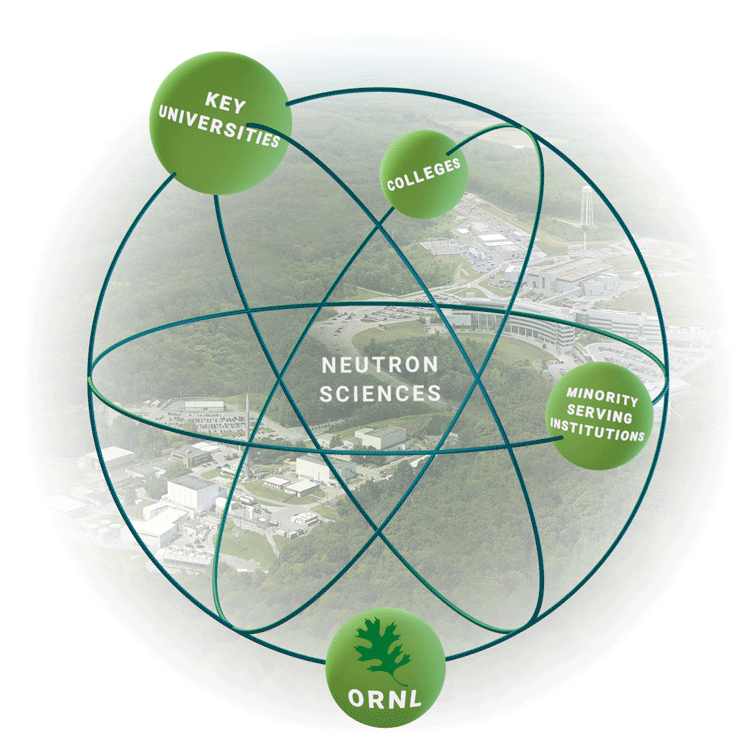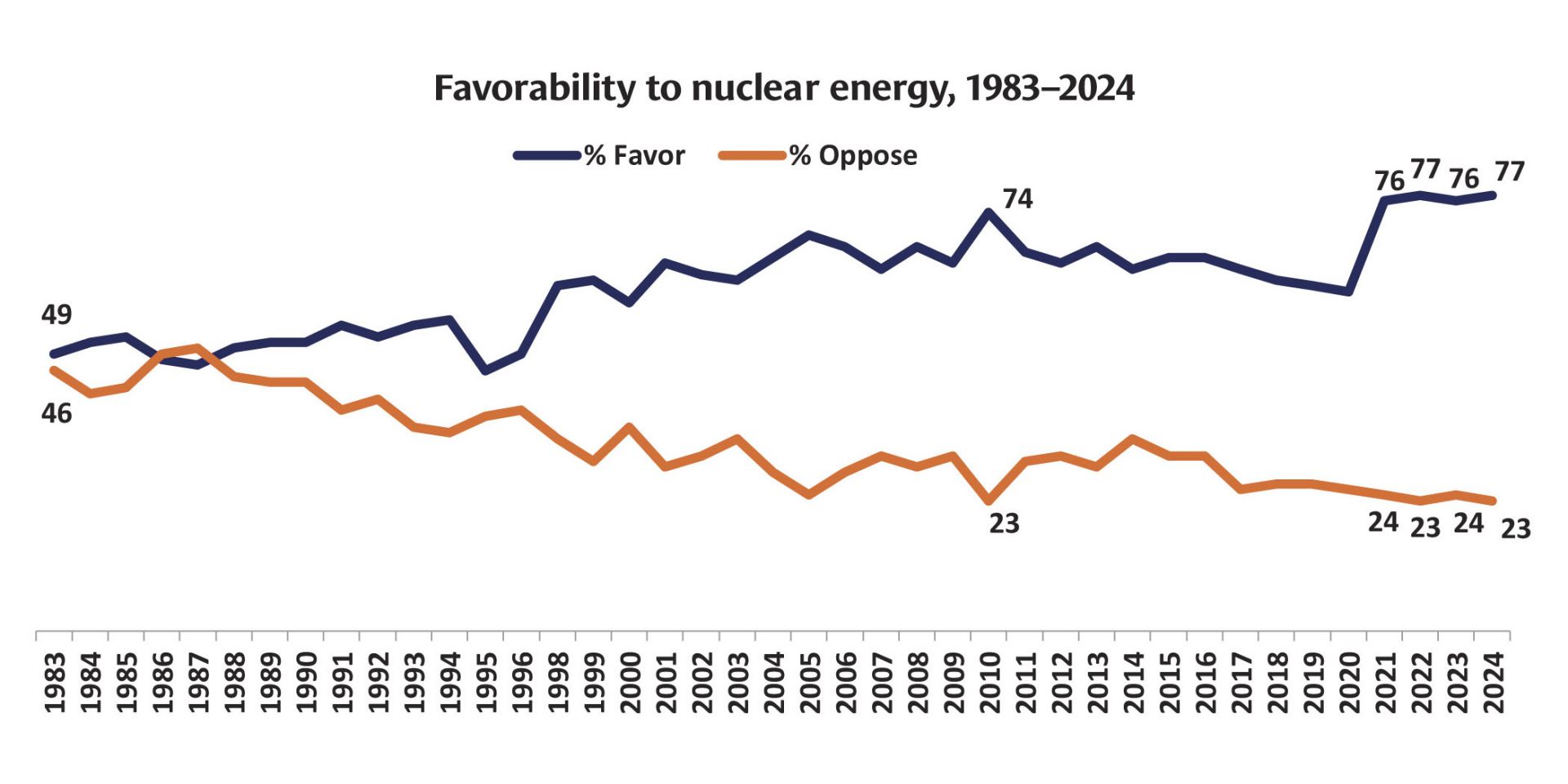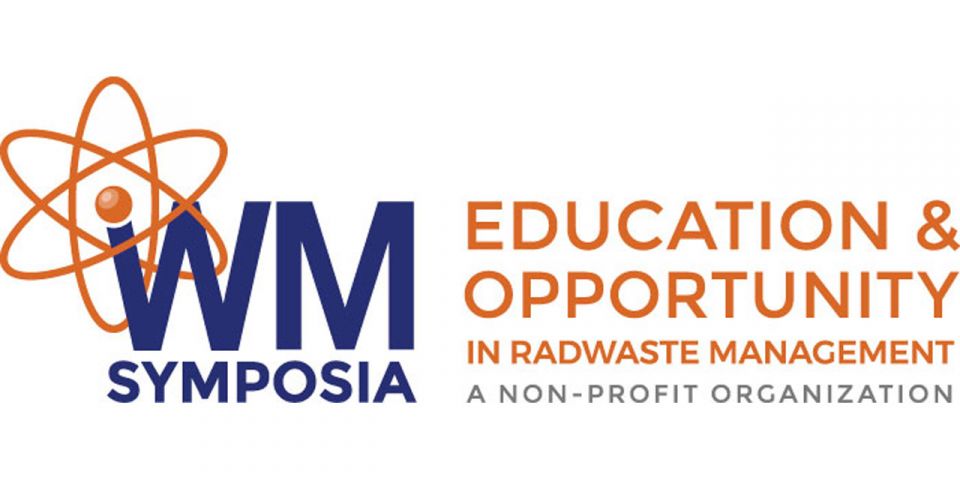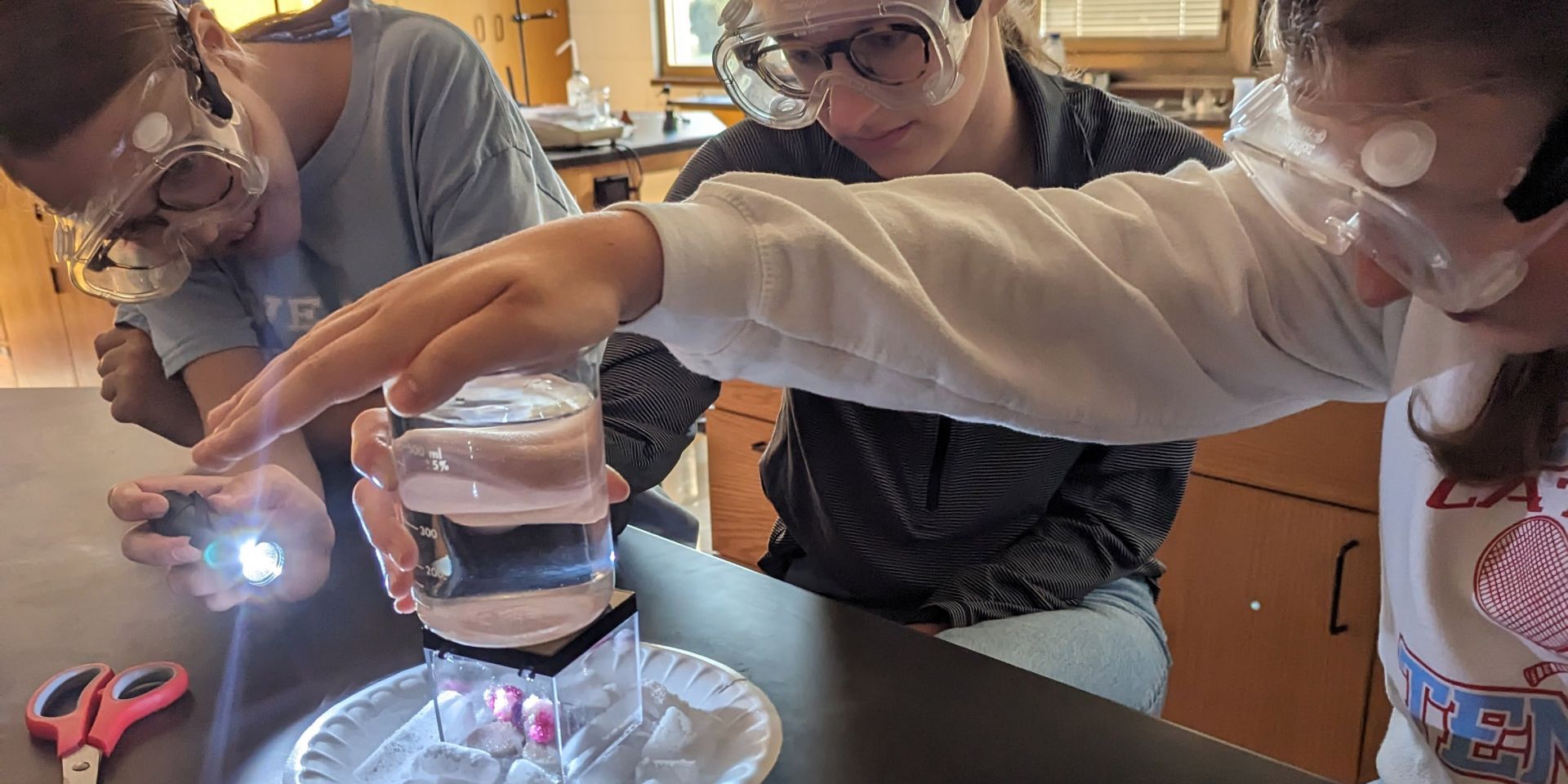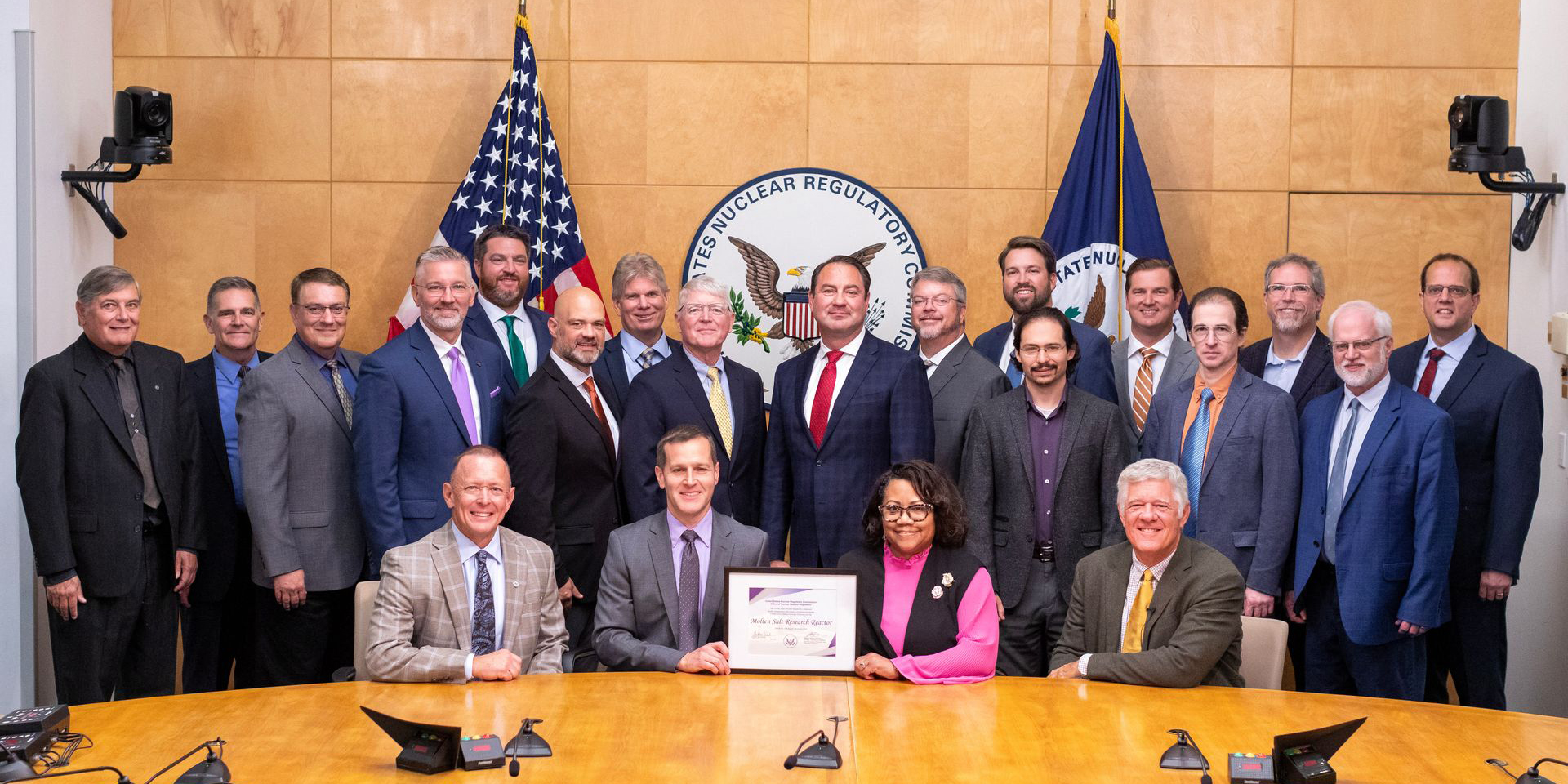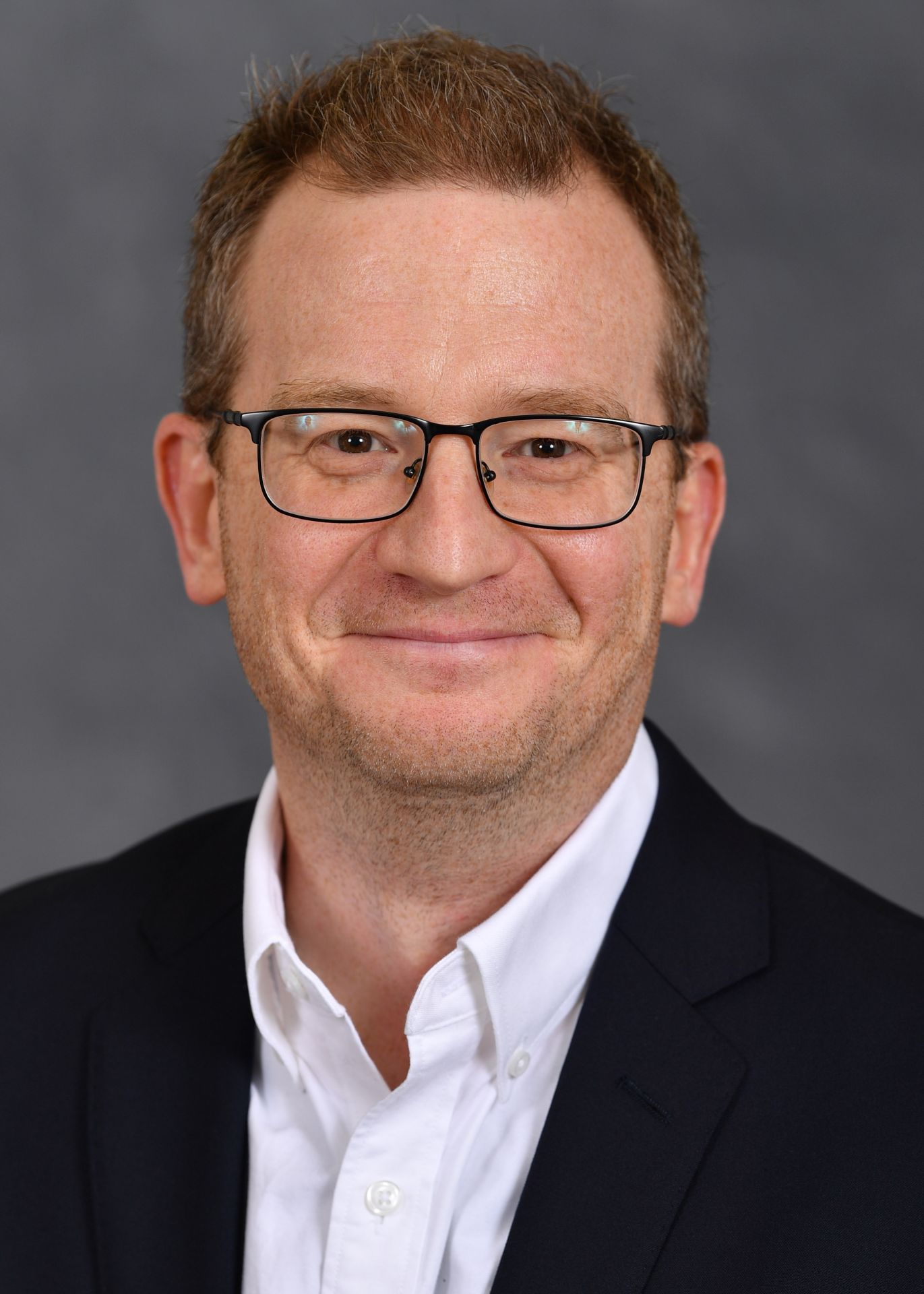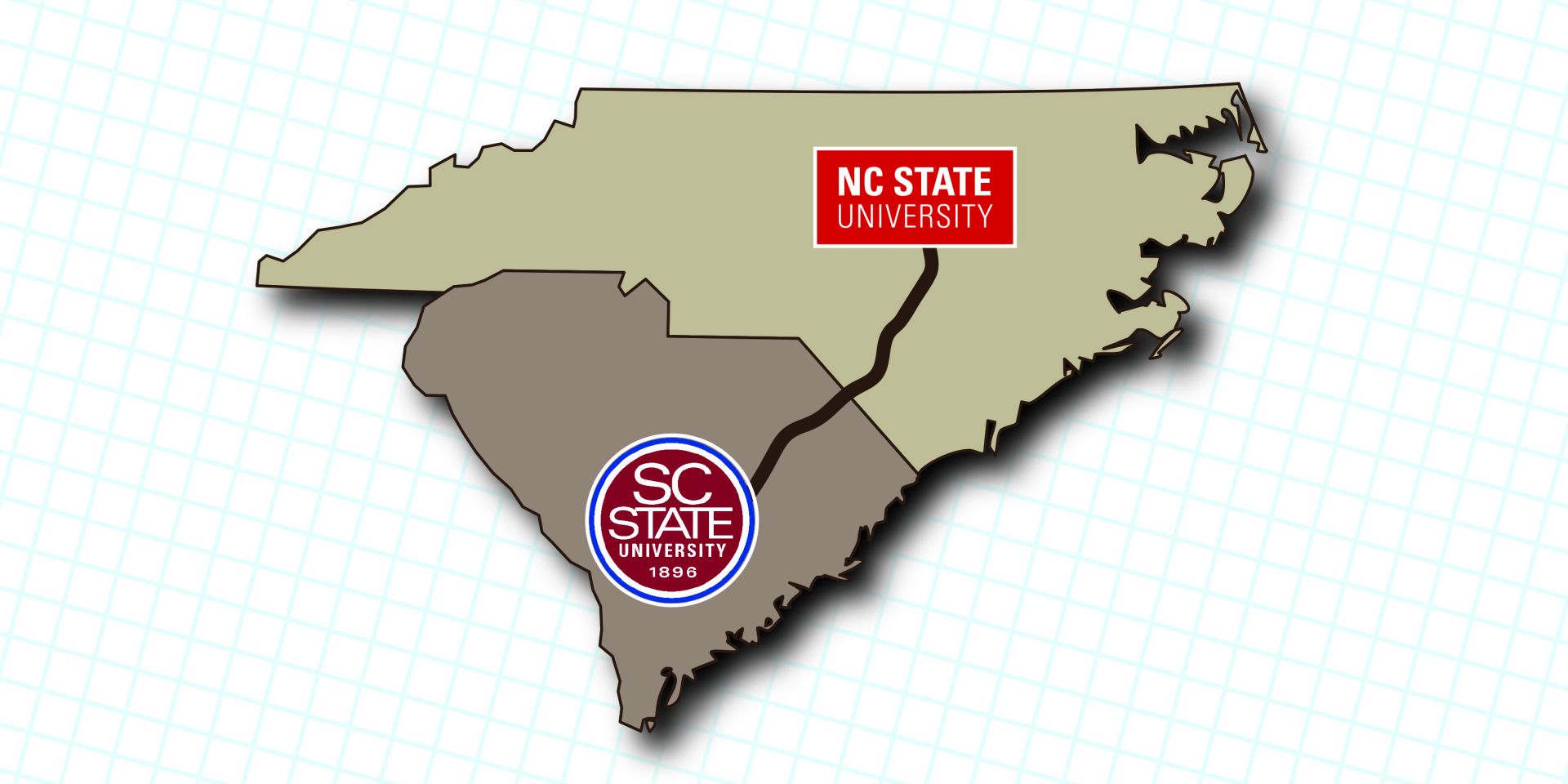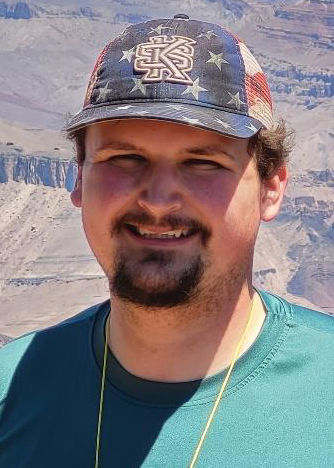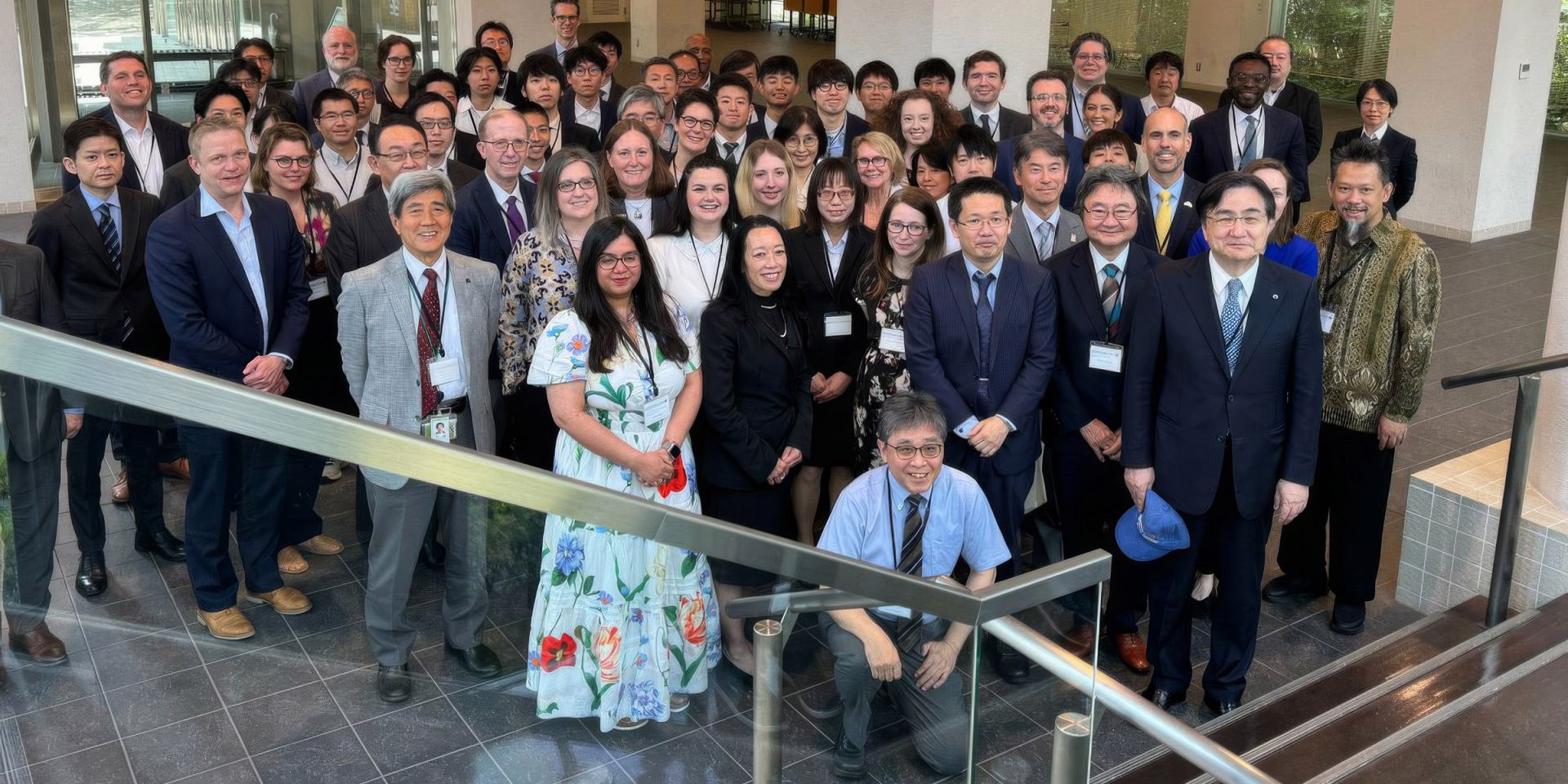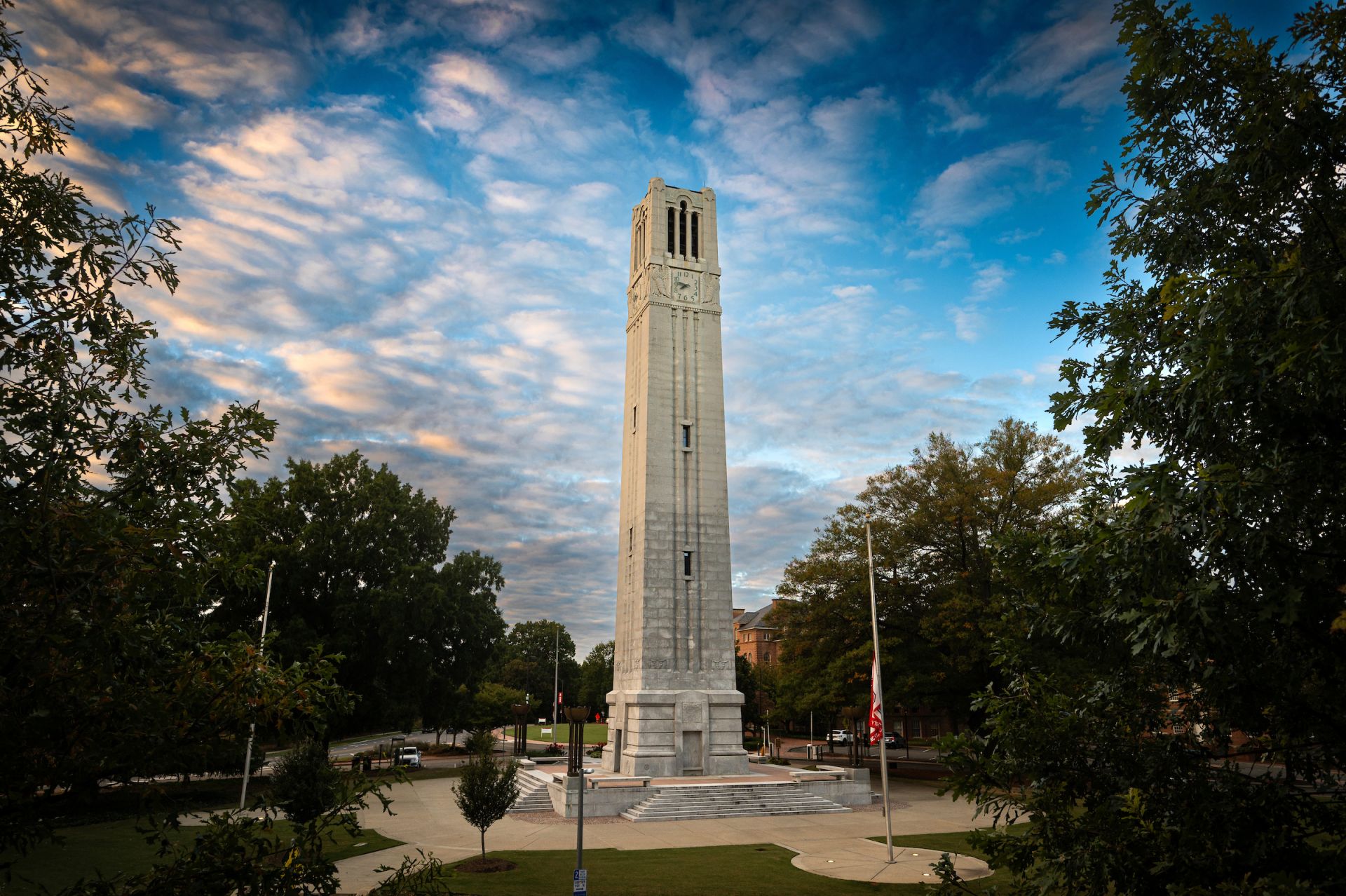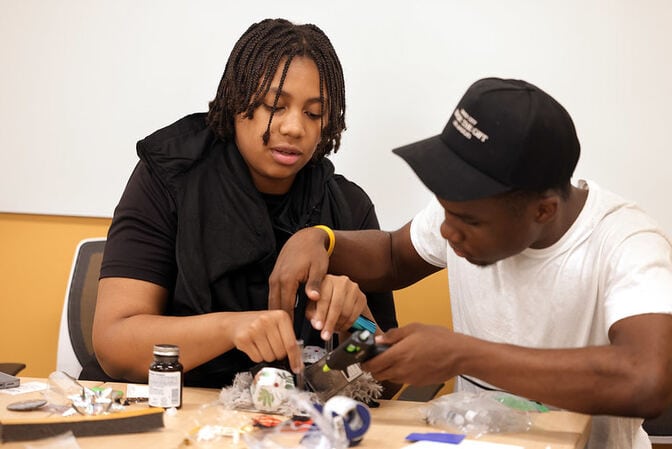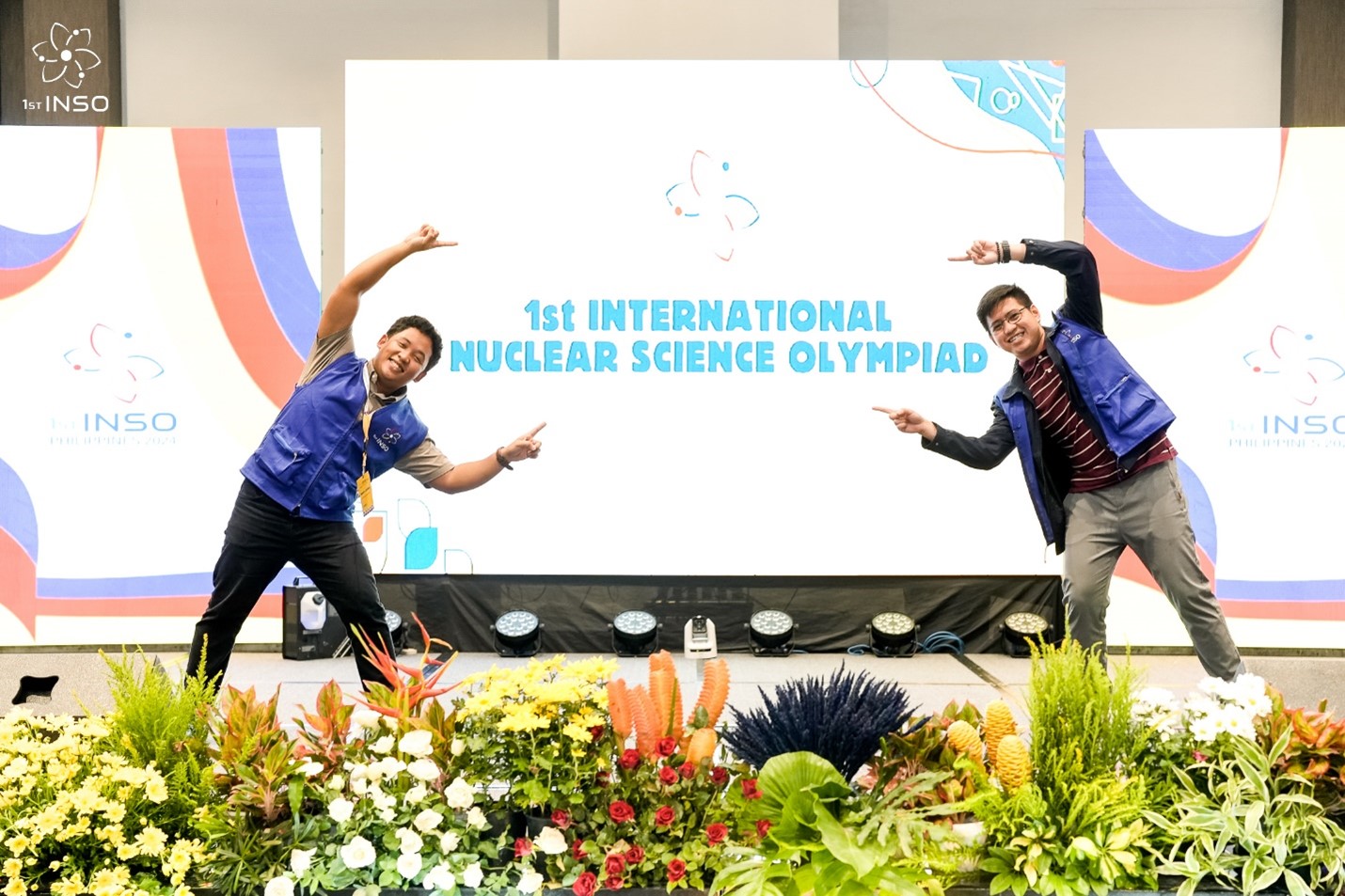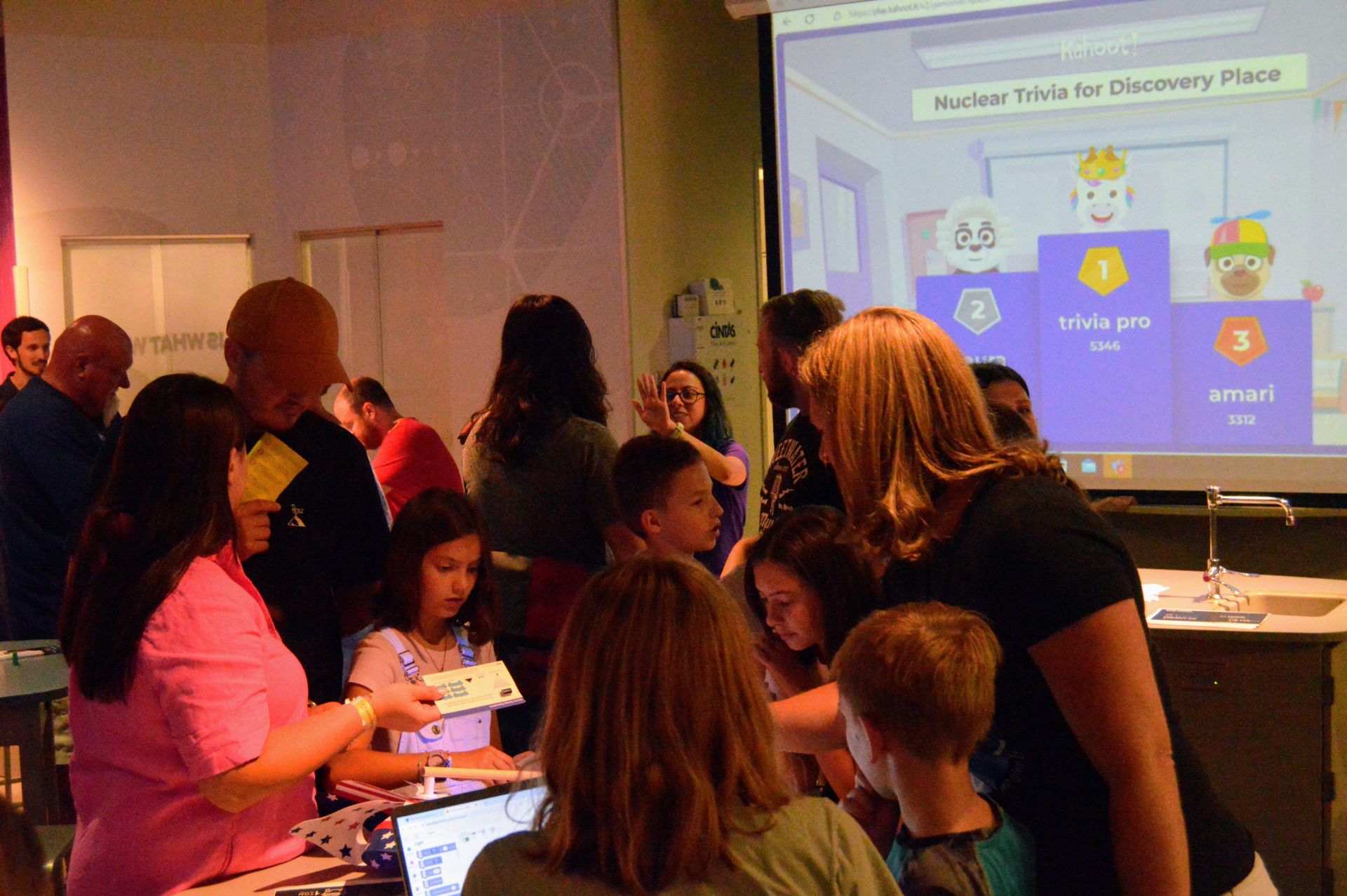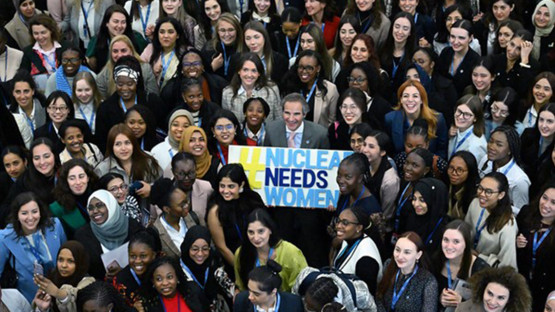Participants visited the Augusta Convention Center to meet with representatives of hundreds of colleges and universities. (Photo: SRS)
More than 4,700 attendees recently filled the Augusta Convention Center in Georgia in search of higher education and career opportunities during the Savannah River Site Central Savannah River Area College Night. The Department of Energy’s Savannah River Site is in South Carolina.
Survey respondents (%) who favor or oppose the use of nuclear energy for electricity in the United States, 1983–2024. (Graph: Bisconti Research Inc.)
Ann Stouffer Bisconti has been surveying and analyzing the American public’s attitudes and knowledge about nuclear energy for more than four decades. Her research company’s 2024 survey proved to be especially revealing. “The 2024 National Nuclear Energy Public Opinion Survey contained such a wealth of information that I prepared nine reports” to cover all the collected data, she said.
A student demonstrates VR models of fission and fusion energy systems. (Photo: University of Michigan)
A new course at the University of Michigan offered by the Nuclear Engineering and Radiological Sciences (NERS) Department seeks to address the lack of community engagement in the design of energy technologies by pioneering a socially engaged approach.
Students using an ANS Visualizing Radiation Cloud Chamber. (Photo: Grace Stanke)
Nuclear science and technology is uniquely positioned to be a gateway for curiosity and exploration for students in grades K–12. Its study examines the literal fabric of reality, it has applications from the tiniest to the grandest of scales. It’s a constantly evolving industry with a bright future of discoveries and new technologies, and it’s an essential factor in our global effort to reduce carbon emissions and transition to cleaner energy sources. Frankly, learning about and doing things with atoms is pretty cool, from a kid’s perspective.
Representatives from Natura Resources, the Zachry Group, Abilene Christian University, the University of Texas–Austin, Texas A&M University, and the Georgia Institute of Technology with the construction permit at NRC headquarters. (Photo: Natura Resources)
The Nuclear Regulatory Commission issued a construction permit yesterday to Abilene Christian University, giving ACU and its partners the go-ahead to build the Molten Salt Research Reactor (MSRR) facility on its Abilene, Texas, campus. The 1-MWt research reactor is the first molten salt–fueled reactor to get a construction permit from the NRC. After Kairos Power’s Hermes, it is the second non–light water reactor construction permit issued by the NRC.
Tohoku University’s Sakura Hall was the site of a workshop coffee break and photo op. (All photos: University of Michigan/Tohoku University)
Tohoku University in Sendai, Japan, was the site of an advanced nuclear reactor workshop in late May that was hosted by the Fastest Path to Zero Initiative of the University of Michigan and Tohoku’s Center for Fundamental Research on Nuclear Decommissioning. The event was co-organized by the U.S. Consulate in Sapporo, Japan, and the Atlantic Council, which is associated with the North Atlantic Treaty Organization. The workshop, “The Potential Contribution of Advanced Nuclear Energy Technologies to the Decarbonization and Economic Development of Japan and the U.S.,” featured numerous American and Japanese academic authorities, government policymakers, executives of utilities and advanced reactor developers, and leaders of nongovernmental organizations. Also participating were students from both the University of Michigan and Tohoku University.
The Memorial Belltower at NC State in Raleigh. (Photo: NC State)
North Carolina State University is hosting the inaugural Future Leaders in Nuclear: Undergraduate Symposium in early October at its campus in Raleigh. The event for rising juniors and seniors in nuclear engineering or related science and engineering fields will give attendees the opportunity to present their research.
High school students Madison Henley of Detroit, Mich. (left) and Simon Fadare of Atlanta, Ga., work on a project to imagine and build a future nuclear energy device. (Photo: Brenda Ahearn/Michigan Engineering)
The first Harper Academy 4 Future Nuclear Engineers was held recently at the University of Michigan. The four-week program provided eight rising high school seniors with classes in nuclear engineering fundamentals, mathematics, technical skills, design, community engagement, and college preparation. While taking the course, the students stayed at Bursley Hall on the university’s Ann Arbor campus.
Students celebrate the first International Nuclear Science Olympiad. (Photo: INSO)
Fifty-five high schoolers representing 14 Asian countries participated in an inaugural nuclear science competition earlier this month in the Philippines.
The event was held in the run-up to the United Nations’ International Youth Day, which is celebrated worldwide on August 12 to recognize and encourage the potential of young people as active partners in the global society. The nuclear field presents many opportunities for the next generation of scientists and engineers.
The company has awarded nearly $6 million for STEM education and research programs since the program launched in 2010
Constellation is taking applications for its 2024 E2 Energy to Educate grant program, which provides funding for student projects focusing on energy innovation.
Educators and students in grades 6–12 can apply for program grants of up to $25,000, and those in two- and four-year colleges can apply for grants of up to $50,000.
Attendees at the Discovery Place's Energy Summit. (Photo: Steve Rea)
Imagine a place where children and adults can learn together about nuclear science as a carbon-free energy source that can be an answer to climate change. Guests can experience a cloud chamber, remotely inspect equipment with a drone, and hold a simulated low-enriched uranium fuel pellet. On Saturday, July 6, such a place actually existed for three hours. That place was the Discovery Place Science Museum in Charlotte, N.C. Ryan Leung, a Discovery Place experience specialist, led a team of local nuclear energy industry volunteers and representatives from the American Nuclear Society and Women in Nuclear to organize and execute an Energy Summit.



